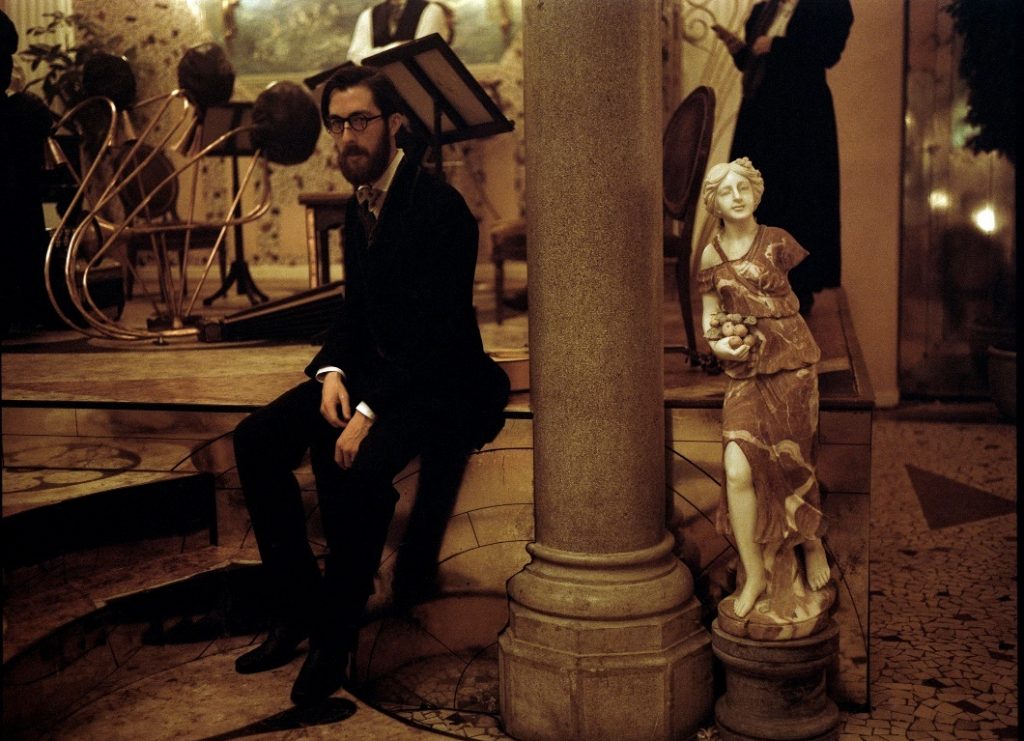
“Fucking get yourself to the Windmill,” says Jerskin Fendrix.
It’s the advice the Poor Things composer kindly supplies when we ask him about The Windmill Brixton, “an iconic London pub-turned-venue of the 2000s.” The venue is run by Tim Perry, a promoter the composer thanks for letting him cut his teeth on music there and, in his own words, “fuck with it for months and months.”
Again, Fendrix emphasizes, go to the Windmill. “Sometimes there’s shit, sometimes there’s genius, sometimes there’s stuff in between, but really, it’s the best venue in London.”
Consider the suggestion a little backstory for the Poor Things composer, who, with Yorgos Lanthimos‘ fairy tale, scores his first film. Yes, that’s right, the magnificent score is from a first-time film composer. It makes sense. There’s a curiosity there and an anything-goes approach that, honestly, is just right for Bella (Emma Stone) experiencing the world for the first time.
Previously, Fendrix released only one album “Winterreise,” which is a must-hear, especially after experiencing his Poor Things score. With his first film composing gig, he wasn’t interested in what has been done before. Instead, he simply asked, what can be done? That on top of many other questions he had for himself.
Without further ado, enjoy a brief trip through the mind of composer Jerskin Fendrix, a man who told Below the Line in a spoiler-filled interview he often wanted to “take the piss” with his magnificent score.
Below the Line: What are you working on today?
Jerksin Fendrix: What am I working on? Oh, I actually can’t tell you, but stuff.
BTL: Alright, interesting. I’ll tell you, I was enjoying your album with my morning walk and coffee, and I thought-
Fendrix: Oh, God.
BTL: What, are you not a fan or something?
Fendrix: I’m a huge fan. I wouldn’t combine it with a morning coffee, though. I feel like that would give you an aneurysm.
BTL: Oh, it was nice. I imagined you like God (Willem Dafoe), just living in your own little world of creativity and creating these unworldly sounds.
Fendrix: I mean, yeah, that’s all what I’m doing, I suppose.
BTL: Did Yorgos hear the album and think you’re just right for Poor Things?
Fendrix: Yeah, he had heard the album, which was the only thing he really would’ve been able to hear, and he was also aware that, a few years back, I’d written this experimental opera, which we put on at the Vienna State Opera in 2018. It wasn’t available online, but there’s evidence it existed. I think it was a combination of those things, which led him to get in touch.
The album didn’t obviously lend itself to any film scoring capability, but the thing we were on the same page about is taking the piss a bit, using humor in music. It’s generally something we’re pretty on the same page about. Also, how it can be weaponized or deployed to accentuate far deeper things or more unrelated things. Once I realized that was where he was coming from, it all made sense.
BTL: The score sounds classical, modern and futuristic, and on top of that, out of time in a way. How do you pull all of that off?
Fendrix: How do you pull that off? I mean, God, a big thing we had initially was we didn’t want to talk about any other music. Yorgos never had any references. We never discussed another composer or a single musical reference. The brief generally was to really immerse yourself in the world, and I had the script and had all the designs for what it was going to look like.
A big part of the early process was trying to work out what sounds I wanted, what I wanted to express with it, and what’s the language I could craft from the beginning that would allow me to get across this sense of something very unusual cosmetically. Also, to create a vehicle for these raw, unfiltered, often very adolescent and explosive emotions.
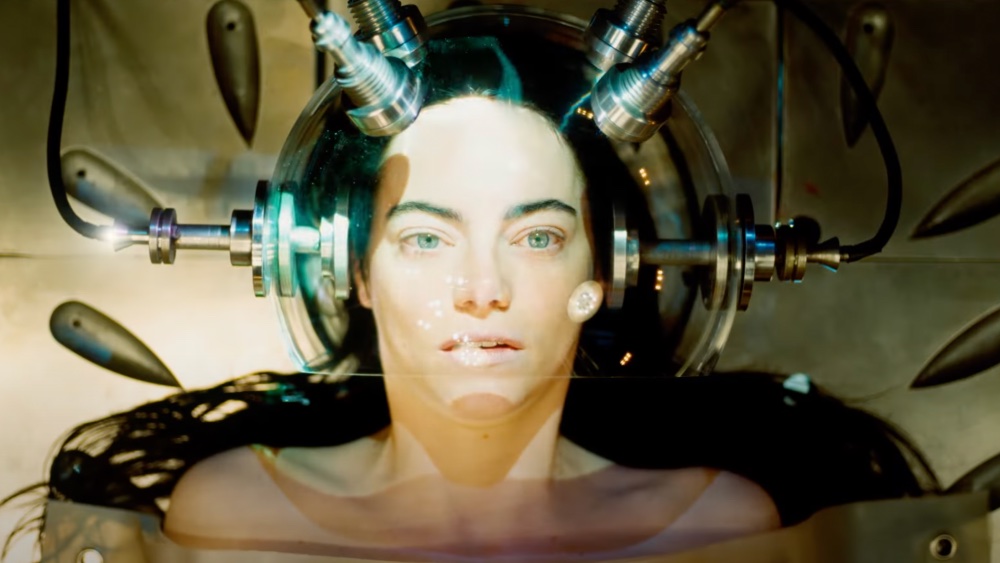
BTL: So, Poor Things is basically a coming of age story with Belle starting as a child and then becoming God. For that journey, what was it like finding that inner language, musically, for Bella?
Fendrix: It’s a really good point about her starting as a child and becoming God. An interesting part of it is there’s no point where she’s normal. There’s no point where she’s a standard teenager or a standard adult or any point where she goes from this really odd misfit, quasi-child and then somehow levitates above everyone else in terms of her emotional maturity and her ability to understand human nature.
So, it didn’t make any sense at any point for the music to settle down, and somehow it had to go from this childish naivety to something transcendent and bridge the gap without really anything in the middle.
I think the naivety and the bluntness, the rawness of it, actually lends itself to both worlds in a lot of ways. She’s quite similar at the end of her transformation. She’s just basically learned how to harness this unusual psychology she’s been granted for her own benefit and others benefit.
BTL: To accurately communicate Bell’s unconventional arc, how’d you see the beginning, middle, and end of your score then?
Fendrix: One thing I didn’t get rid of at any point is I liked the idea that the score was tied empathetically to the emotions of the characters, mainly Bella, but also the ways in which other people interacted with Bella and fell in love with her in different capacities.
I wanted it to be inside the emotional sphere of the film. I looked in directions where something could be more of a polished thing and more of a score which is a bit more omnipotent, a bit more invincible, a bit sexier, where it’s almost like a building. It’s beautiful, but it’s objective.
I really wanted the score, even at the points where she’s fully developed or she’s at the apotheosis of this experience, it still needed to be a human emotion. It still needed to be vulnerable, imperfect, and the opposite of invincible. It needed to have this feeling that, I don’t know, I’m not describing this very concisely…
BTL: But I think that’s kind of fitting for the movie, too.
Fendrix: Yeah, yeah, sure. It needed to be able to outburst. I didn’t want anything elegant about it. I didn’t want the sanitization of any of these emotions. I think really allowing them to be honest and forthright and as complicated and hideous and intense as actual emotions are, that’s more important than creating something which was cosmetically very finished, if that makes sense.
BTL: The score is a similar experience to your album, in that moments feel jarring and off yet right. What were moments in Poor Things well you thought, technically this might be wrong but thematically it’s just right?
Fendrix: Yeah, no, there’s a lot of points of that happening. It was a bit of a risk to take. When we were at the final mixing stage, we had a lot of different versions of some of the pieces, in terms of performance and recording quality. A lot of the time we opted for the stuff that was rougher and was a bit off, even though it probably wouldn’t pass in some works. The main yardstick I had Wass, am I being moved by this? Is there an emotional sense to it?
I think one of the things about music I really love and why people find music to be a very comforting thing is it kind of tells you how to feel in a lot of ways. When people listen to sad music when they’re sad, it doesn’t make any sense technically, but actually, I think when people are sad or upset, they listen to music because being sad in real life isn’t a beautiful string kind of requiem.
It’s a really confusing number of emotions, like, am I angry? Am I frustrated? Is this actually kind of funny? Am I relieved? And it’s the confusion that makes people feel uneasy. Then music gets to tell you, okay, you are sad. It lets you direct these emotions.
What I was doing was almost the inverse where it’s like, this is how this person’s feeling, and to a normal person, it isn’t this gorgeously rendered funeral piece or whatever. It’s something that can be simultaneously really sad or really horrifying, but also has elements of it being funny or relieving or unnerving. I was trying to work out how I can musically communicate more honestly the complexity of these emotions.
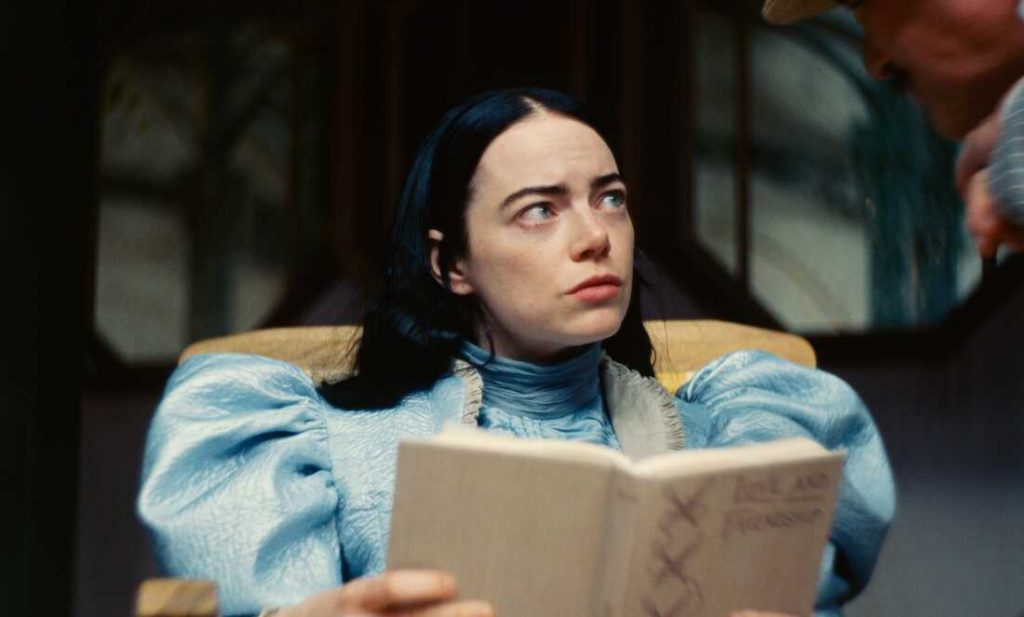
BTL: An example of this, I think, is when the theater almost vibrate from one of your cues. Towards the end of the movie, I think it’s a bass that you can just feel in your toes. Do you know the moment I mean?
Fendrix: Yeah, I like that.
BTL: How’d that unsettling bit of music and intense mix come about? When people see the [church] scene, they’ll know exactly what we’re talking about.
Fendrix: I love how that bit works in the script, because you get Bella’s journey in of itself and it’s like, oh, this wonder of the world, and then there’s an uneasiness, and then she sees horror for the first time, and she’s not actually experiencing it, but she’s seeing that it’s possible. Then there’s this massive dramatic swell and she’s completely upset and tries to chew this guy’s handoff. And then, a turn basically when you realize what’s happened and what she has to return to when Alfie (Christopher Abbot) comes in, all the stuff.
That’s the point where it’s like, okay, her building itself is kind of finished and now you get the real, real fucking threat. A lot of the stuff in the film, I think, there was almost some of protectiveness about it. And then this real predatory thing comes in and as you say, the feeling that your gut dropping, that noise is when this death knell happens.
Especially when she’s at her old house, Alfie’s house, I didn’t want to fuck about with anything too playful once someone’s reminded of why they killed themselves. Basically, it had to really fucking go for the jugular.
BTL: Maybe one of the most joyful pieces of score is when Bella dances. You’re in that scene. What was that instrument you were playing? I’d never seen that before.
Fendrix: Oh, I don’t think anyone had. Loved doing that dance sequence. I was very lucky to be invited on the set to organize that, basically. We had a great choreographer as well, Constanza [Macras], doing the dance. Writing that music and all these Hungarian musicians from Budapest, the scene we shot for four days or so, there were stunts involved, and we were playing all the music live on set as they were dancing and doing all the acting. It was an incredibly complex sequence.
The instrument was made by the prop department in conversation with me. I sent some ideas over about what the instrument needed to do, and then they came up with this fucking nuts thing. Yeah, it was great. That whole experience was phenomenal.
BTL: Let’s go back to the six months you had to work before filming. What experiments did you try out? Which ideas stuck and didn’t in the score?
Fendrix: The important thing to remember is I had never done a score before, and Yorgos had never used a composer before. A part of it was just kind of working out, how far can I push this? And the answer to that ended up being as far as I wanted. I was just waiting for Yorgos to say, “This is too fucking weird. Actually, dial it back slightly.” All I got was like, “Yeah, more, more, more, more.”
There were definitely a couple of months where I was basically trying to work out how to work with Yorgos and work out what the language of the film would’ve been musically, just building these sounds and choosing stuff. I’m a big fan of being able to have a lot of time to get the mise en place together, basically to know exactly what I’m going to be playing with.
And then as soon as that was all down, based on the story, I just wrote and wrote and wrote, and wondered, what would she feel here? What does it feel like to fall in love in this way for the first time? And it was a great environment where I could basically write abstractly without the format constraints of, oh, this has to be upbeat and it has to be one minute and 33 seconds, and it has to match their sequence.
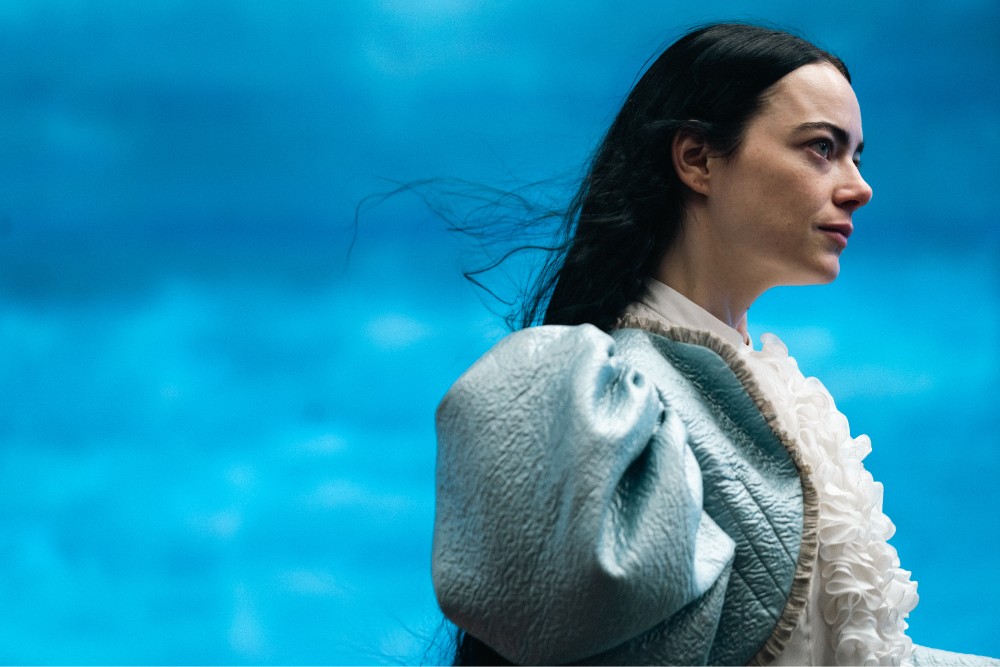
BTL: Does Yorgos ever tell you his answers to those questions, such as, what would she feel here or what does this mean? Does he lead you there at all or leave it all to your interpretation?
Fendrix: The second one, and it’s good and important. I would not personally hazard a guess what the true inner-workings of Yorgos are, and I’m sure I wouldn’t want to know, but he would never impose an interpretation on his colleagues or on his audience of anything. I think that’s very important. For someone who works with him, it allows you to completely take responsibility as to what your interpretation is of something.
If he decides to have an interpretation that he offers to you, then you have 20 people in the different departments all working to the same interpretation, and you have a film that is 20 times less complex and interesting than you would get if you let 20 people who are imaginative and creative come up with their own ideas about what these stories, characters, and ideas mean. In relegating that control, he’s able to have this huge kaleidoscope of opinions and feelings towards something. I think that’s one of the reasons why the film has this alluring complexity to it artistically, as well as thematically.
BTL: Even though you’re doing all this press now, are there certain elements of your work you want to leave unexplained and let an audience’s imagination run wild?
Fendrix: Oh, you could go through the whole film and ask me very reasonably, “Why the fuck did you decide to do that?” I don’t know. When you or whoever asks about a piece of music you like, at this point I can offer how I think it relates to the film and the story, and it makes sense because it’s finished. I probably wouldn’t be giving you the same answer directly after I wrote it.
I’m a sensitive person, and I write in a very emotionally driven way. I do think a great deal of it comes down to being receptive to these feelings and understanding when something is actually something you should follow, which in a lot of ways, goes against logic or the logical way in which one’s educated. A lot of it’s very mysterious. I don’t understand why I made a lot of the artistic decisions. I think the important thing was to allow myself the environment in which I could just be a vessel for them.
BTL: My co-worker, Ed Douglas, had a question for you. I hope I don’t misquote him, but he wondered, were you playing strings and putting them through synthesizers?
Fendrix: Oh, interesting. It’s in the right ballpark. The answer is slightly more unexpected than that. I’m definitely doing stuff to stuff. For example, we recorded every instrument separately. I never had an ensemble in the room doing any of the pieces. Basically, did every single take completely dry, completely individually, which basically allowed me the freedom to do as much processing on each sound as I wanted.
There’s a lot of cases where an instrument sounds obviously like an instrument, but it’s not an instrument. Thematically, the film has a lot to do with the modification of life, in a literal medical sense, and also, what does it mean to evolve? What does it mean to change or to learn or to alter yourself as a human? So musically, I really wanted to explore that through, for example, being able to basically do surgery on all the instruments and change them into something where it sounded kind of familiar, but then if you thought about it, oh, there’s actually something off about it. People fall in love with Bella, even though their lizard brain is telling ’em that there’s something really fucking bad going on. And so, I wanted to try and play with that underscore.
I was really interested in ideas of wind instruments and breath, because obviously, again, the modification of life is so central to the film and breath is obviously a very interesting symbol associated with life. And now, I’m going to get very specific here.
BTL: Please do.
Fendrix: So for example, let’s say you split wind instruments into two categories, which are wind instruments from a human breath like a flute, and then wind instruments where the breath is mechanically created for the instrument and not actually coming from lungs, like bagpipes, pipe organs, and accordions. I use a lot of instruments that were mechanized wind rather than human breath wind.
I noticed when I was thinking about this idea was a lot of human wind instruments, they do what people do when they talk, which is to bend. When we speak, it’s like a bunch of pitches that really bend between each other until they become basically non-tonal. And you have a trumpet player or flute player, they bend a little bit and it’s coming out of a person. There’s a bit of talking, and it’s often quite sweet. Pipe organs, accordions, and often bagpipes, those tend to be very fixed pitch.
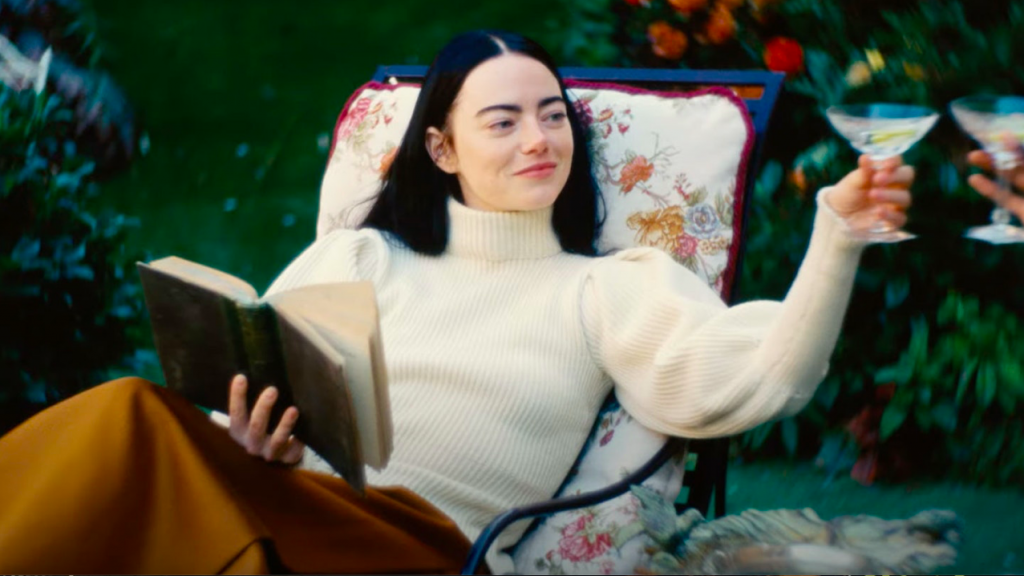
A lot of the musical experimentation I was doing is what happens if you take, say a pipe organ… That piece you were talking about in the church with the deep bass hit, the main bass of that piece is this pipe organ that we were getting to bend. And basically, when you get a mechanized or reanimated wind instrument, where you’ve made it breathe by your human science rather the fact that you are breathing through it, and then you get it to do human bending, to do speech pitch, basically.
The first time I successfully tried it out, it was really unnerving, this sense of something which is breathing but not human. It’s kind of trying to talk to you somehow, and it really fucking made my head stick up.
So that, for example, one of the ways I was trying to play with these ideas through the processing of the instruments. I think there was so much interesting stuff to come out of these experiments. So, that’s why we did it like that.
BTL: Thank you for that. I do like listening to a score and wondering, “What the hell is this?” but it’s also great to hear about that process.
Fendrix: It’s only some of it. I’ve definitely not revealed the good bits yet, but I think it gives you an idea of roughly what we were playing with.
BTL: My final question relates to my first question regarding your album. I have to ask about one lyric in particular. Please, tell me, why do you wake up in the morning feeling like Nora Lum?
Fendrix: You ever heard the song “NYC Bitche$” by Awkwafina?
BTL: Oh, yeah. I like her music.
Fendrix: Oh, she’s so fucking cool. God, what a great song. Yeah, it was just..
BTL: It was just on your mind one day?
Fendrix: It was just on my mind, man.
Poor Things is now playing in limited release and expands in theaters on December 22nd.





